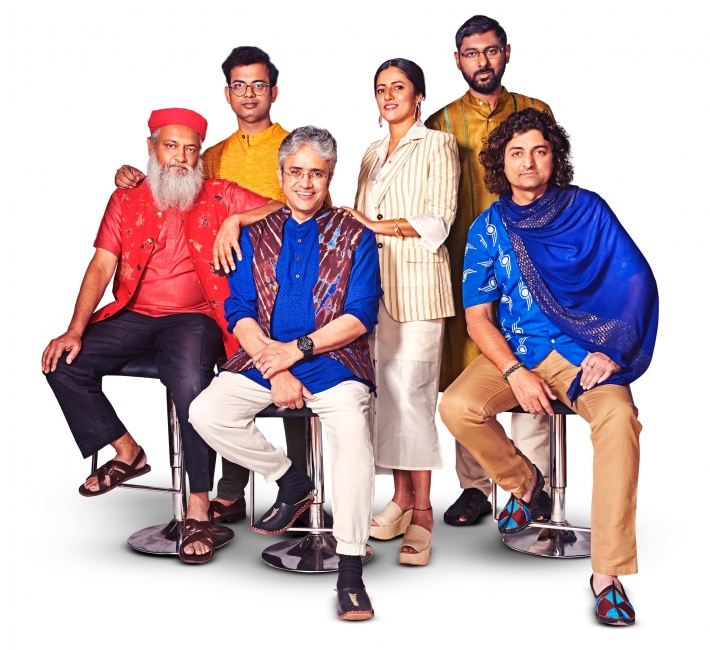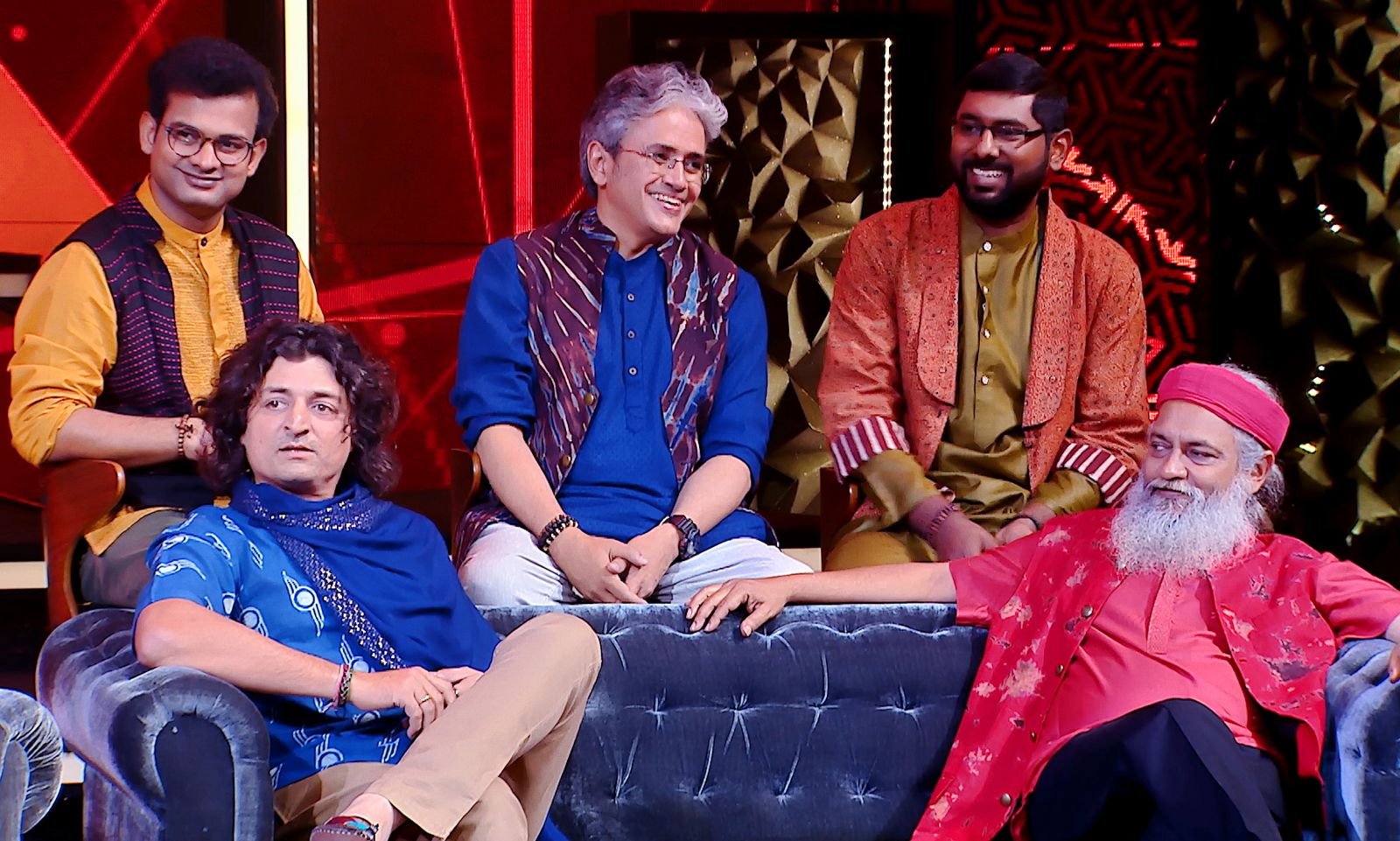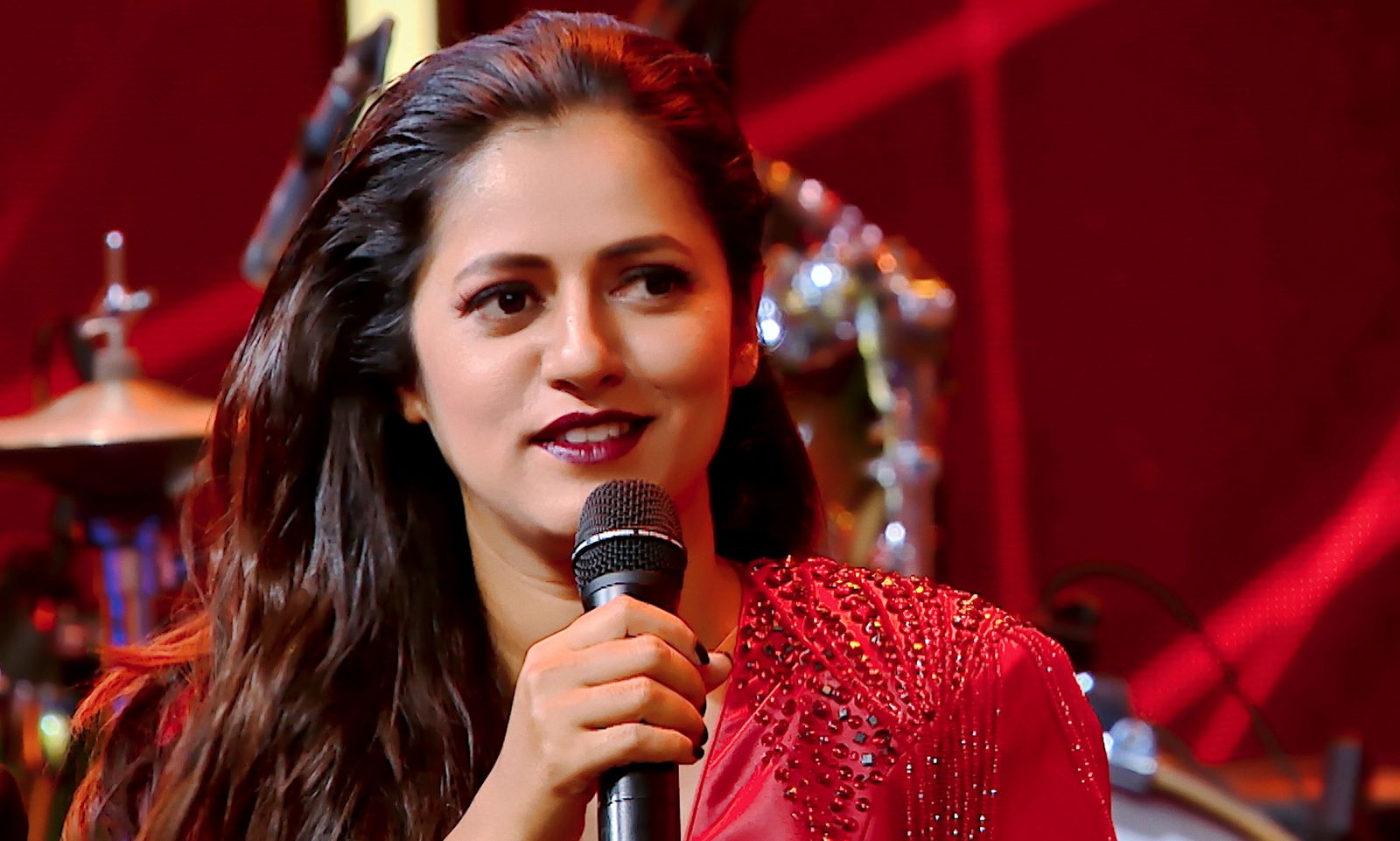
 Photo Courtesy: Times Of Music, MX Player
Photo Courtesy: Times Of Music, MX Player
‘Times Of Music’ released its eleventh episode last weekend, returning to its format of two musical entities from different streams or eras interpreting each other’s work. This episode features Bollywood’s only female music director Sneha Khanwalkar and legendary rock band Indian Ocean, a name almost everyone who has heard of the country’s indie music scene knows. The episode features imaginatively reimagined versions of Indian Ocean’s classic ‘Bandeh’ and Sneha’s ‘Tung Tung Baje’ from the Akshay Kumar-starrer Singh Is Bliing. The episode also features stories from Anurag Kashyap, who is a sort of common thread between both guests.
The episode’s discussion on Indian Ocean’s side, among other topics, speaks to their long career in what a lot of people consider to be a long and hard grind in the country’s independent music scene. The band has composed for a few Bollywood films before, but Rahul Ram states, “The difference with us is that we write all our music for ourselves; no producer or director directs us to do it. Nobody tells us to suit a plot or change a song’s length. We do it all from our hearts.” There is also a focus on his experiences related to his environmental activism; he was jailed during the Narmada Bachao Andolan and wrote music while inspired by the plight of people who were displaced by damming projects.

Sneha brings a very upfront attitude to the whole conversation about being a female music director (and the only one in Bollywood). The show’s host Vishal Dadlani brings up the story of how Lata Mangeshkar composed under a male alias back in the 70s; when asked whether her being a woman matters after all the fame, Sneha quips, “I am not bothered about it… I don’t think about it too much. Maybe it does, but how would I know? I’ve never been a male.” She also speaks on her beginnings in the industry; her version of ‘Bandeh’ brings the sharpness and modernism she shows.

Dadlani acknowledges the differences between Indian Ocean’s sound and the original version of Tung Tung Baje, and the band brings a lot of their personality to it. The band gives the song’s intro a darker and more grey feel while the instrumental palate of the band has a naturally rootsy feel to it that is instantly noticeable. The middle section of the song (that is in Kashmiri) is given a similarly dark feel that is a compelling switch-up (as Sneha points out after the performance). The rock influences also result in a lot of melodies becoming dark-tinged riffs. Sneha puts an equally radical spin on ‘Bandeh’, retaining the meat of the song while adding tons of texture. She follows up a long intro with a surprising but incredibly satisfying infusion of techno and neo-noir electronic music; the retro and dark bassline and sounds she uses go well with the main vocal. Her instrumental choices like a faraway trumpet and driving grooves take the song into a really interesting place, with the cherry on top being spoken word passages from legendary actor Piyush Mishra. The band appreciated the idea of the song being taken from an older time to a postmodern setting.
Times Of Music continues its run of episodes focusing on the country’s popular music scene, and continues to go from strength to strength. Indian Ocean and Sneha Khanwalkar are musicians from relatively different times and ‘walks of life’, but at the end of the day, they are both strong composers who show that they can creatively let loose when working on each other’s tracks. Anurag Kashyap also provides context about both of them, speaking about Sneha’s hunger for music and Indian Ocean’s status as a band. Sneha’s ensemble for her rendition do their job expertly, and Indian Ocean show their chemistry and experience as a band that we are all familiar with.
Watch episode 11 on MX Player.
Previous Article A Rock Band And Film Composer Combine Hearts For Legends In Music A Rock Band And Film Composer Combine Hearts For Legends In Music
|
Next Article Aaryan Banthia Takes It Way Back To Simpler Times Aaryan Banthia Takes It Way Back To Simpler Times
|
The tenth episode of Times Of Music features rock band Agnee and film composer Amit Trivedi
Times Of Music suuccessfully creates a unique platform to honour Indian film composers from past and present





Leave a comment